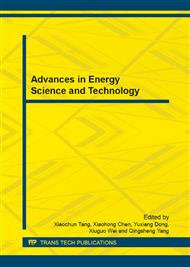p.2132
p.2139
p.2143
p.2149
p.2154
p.2159
p.2164
p.2169
p.2173
Dynamic Economic Emission Dispatch Using Multi-Objective Hybrid Evolutionary Algorithm
Abstract:
Dynamic economic emission dispatch (DEED) is an important optimization task for power plants. The problem is a highly constrained multi-objective optimization problem involving conflicting objectives with both equality and inequality constraints. This paper introduces two objective functions of DEED model: the lowest generation cost and the smallest carbon emissions with power balance constraints, unit output constraints and unit ramp rate limits. Then the paper presents a multi-objective hybrid evolutionary algorithm (MHEA) to solve the DEED model. The MHEA is a hybrid optimization algorithm based on orthogonal initialization, improved differential operation with migration strategy, parameter adaptive control, multi-objective selection strategy and analytic hierarchy process based fuzzy technique (AFT). Numerical results of one test system demonstrate the capabilities of the proposed approach. Compared with other classical methods, the proposed approach gets better result.
Info:
Periodical:
Pages:
2154-2158
Citation:
Online since:
February 2013
Price:
Сopyright:
© 2013 Trans Tech Publications Ltd. All Rights Reserved
Share:
Citation:


